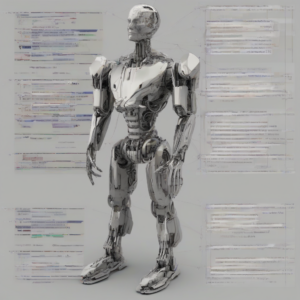What is Industrial-Organizational Psychology?
Industrial-organizational (I-O) psychology, also known as occupational psychology, is a fascinating and impactful field that bridges the gap between academic psychology and the practical world of work. It applies psychological principles and research methods to understand and improve the behavior and performance of individuals and groups in organizational settings. This isn’t simply about understanding individual employees; it’s about understanding the complex interplay between people, processes, and the organizational context itself.
The Scope of I-O Psychology: A Multifaceted Field
I-O psychology isn’t a monolithic entity. It encompasses a diverse range of specializations and applications, each contributing to a more comprehensive understanding and improvement of the workplace. These specializations often overlap and intertwine, creating a rich and dynamic field.
1. Selection and Placement: Finding the Right Fit
- Job Analysis: This fundamental process involves systematically identifying the tasks, duties, responsibilities, and knowledge, skills, and abilities (KSAs) required for a particular job. This forms the basis for effective recruitment and selection strategies.
- Recruitment and Selection: This area focuses on developing and implementing effective methods for attracting qualified candidates and choosing the best fit for open positions. This includes utilizing various assessment tools like personality tests, cognitive ability tests, and structured interviews.
- Placement: Once selected, I-O psychologists help place individuals into roles that best align with their skills, interests, and personality traits, maximizing both individual and organizational success.
2. Training and Development: Fostering Growth and Skill Enhancement
- Needs Assessment: Identifying skill gaps and training needs within an organization is crucial for effective training programs. I-O psychologists use various techniques to determine where training is most needed.
- Training Design and Delivery: This involves creating and implementing effective training programs that are engaging, relevant, and result in measurable improvements in employee performance.
- Evaluation of Training Effectiveness: Measuring the impact of training programs is essential to ensure they are achieving their intended goals. I-O psychologists use various methods to assess the effectiveness of training initiatives.
3. Performance Management: Driving Excellence and Accountability
- Performance Appraisal: Developing and implementing fair and accurate performance appraisal systems is critical for providing constructive feedback, identifying high-potential employees, and making informed decisions about compensation and promotion.
- Performance Improvement: When performance falls short of expectations, I-O psychologists help identify the root causes and develop strategies for improvement, often involving coaching, mentoring, and performance improvement plans.
- 360-Degree Feedback: Gathering feedback from multiple sources – supervisors, peers, subordinates, and even clients – provides a more holistic view of employee performance and areas for development.
4. Organizational Development: Shaping a Thriving Workplace
- Organizational Culture: I-O psychologists assess and help shape organizational culture to create a positive and productive work environment. This includes addressing issues of diversity, inclusion, and employee well-being.
- Team Dynamics: Understanding and improving team dynamics is crucial for effective teamwork. I-O psychologists use various techniques to enhance team cohesion, communication, and performance.
- Change Management: Organizations constantly undergo change, and I-O psychologists play a vital role in managing these transitions, minimizing disruptions, and ensuring a smooth implementation of new processes or structures.
- Organizational Structure and Design: I-O psychologists help design organizational structures that are efficient, effective, and supportive of employee needs and goals.
5. Human Factors and Ergonomics: Optimizing the Human-Machine Interface
- Workplace Design: This specialization focuses on creating workspaces that are safe, efficient, and comfortable for employees. This includes considering factors like lighting, noise levels, and workstation ergonomics.
- Human-Computer Interaction: With the increasing reliance on technology, I-O psychologists contribute to the design of user-friendly and efficient systems, minimizing errors and maximizing productivity.
- Safety and Health: I-O psychologists play a significant role in promoting workplace safety and employee well-being, identifying and mitigating potential hazards and designing interventions to reduce workplace accidents and injuries.
6. Job Satisfaction and Employee Well-being: Cultivating a Positive Work Environment
- Measuring Job Satisfaction: Understanding employee job satisfaction is crucial for improving retention and productivity. I-O psychologists use various methods to assess levels of job satisfaction and identify areas for improvement.
- Stress Management: Workplace stress is a significant concern, and I-O psychologists help develop strategies for managing stress, promoting employee well-being, and preventing burnout.
- Work-Life Balance: Finding a healthy balance between work and personal life is important for employee well-being and productivity. I-O psychologists can help organizations implement policies and programs to support work-life balance.
Methods Used in I-O Psychology: A Blend of Science and Practice
I-O psychologists utilize a wide range of research methods and techniques to address workplace challenges. This blend of scientific rigor and practical application is what sets the field apart.
- Quantitative Methods: Statistical analysis, experimental designs, meta-analysis, and psychometrics are all crucial tools for analyzing data and drawing evidence-based conclusions.
- Qualitative Methods: Interviews, focus groups, observations, and case studies provide rich qualitative data that complements quantitative findings and offers deeper insights into employee experiences and perspectives.
- Surveys and Questionnaires: These are widely used to gather data on attitudes, beliefs, behaviors, and job satisfaction among employees.
- Assessment Tools: A variety of psychological tests, including personality inventories, cognitive ability tests, and work sample tests, are used to assess employee characteristics and predict job performance.
The Importance of I-O Psychology in Today’s World
In today’s rapidly changing and increasingly competitive global landscape, the role of I-O psychology is more crucial than ever. Organizations face numerous challenges, including:
- Technological advancements: The automation of jobs and the rise of artificial intelligence require organizations to adapt and upskill their workforce.
- Globalization: Managing diverse teams and working across cultures requires a deep understanding of human behavior in different contexts.
- Economic fluctuations: Organizations need to be able to manage their workforce effectively during periods of economic uncertainty.
- Increased competition: Attracting and retaining top talent is critical for organizational success.
- Changing workforce demographics: The workforce is becoming increasingly diverse, requiring organizations to adopt inclusive practices and manage generational differences.
I-O psychologists are uniquely positioned to address these challenges by providing data-driven insights and evidence-based solutions. They help organizations create thriving workplaces that are both productive and humane, fostering employee well-being and maximizing organizational success.
The Future of I-O Psychology: Emerging Trends and Challenges
The field of I-O psychology is constantly evolving, adapting to the changing needs of the modern workplace. Several emerging trends are shaping the future of the field:
- Big Data and Analytics: The increasing availability of large datasets provides opportunities to develop more sophisticated models for predicting employee performance and identifying areas for improvement.
- Artificial Intelligence and Machine Learning: AI and machine learning are being integrated into various aspects of I-O psychology, such as talent acquisition, performance management, and employee well-being.
- Focus on Employee Well-being: There’s a growing emphasis on creating workplaces that prioritize employee mental and physical health, fostering a sense of purpose and meaning in work.
- Remote Work and Virtual Teams: The increasing prevalence of remote work and virtual teams requires new approaches to managing teams, communication, and collaboration.
- Diversity, Equity, and Inclusion: Creating inclusive workplaces that value diversity and promote equity is a critical priority for organizations and a key focus area for I-O psychologists.
Despite the exciting advancements, challenges remain. The field needs to continue to strive for greater diversity among its practitioners, ensuring representation from various backgrounds and perspectives. Furthermore, ethical considerations, particularly concerning the use of data and technology, need careful attention.
In conclusion, industrial-organizational psychology is a dynamic and multifaceted field that plays a vital role in shaping the future of work. By applying psychological principles and rigorous research methods, I-O psychologists help organizations create thriving workplaces that are both productive and humane, fostering employee well-being and maximizing organizational success.





